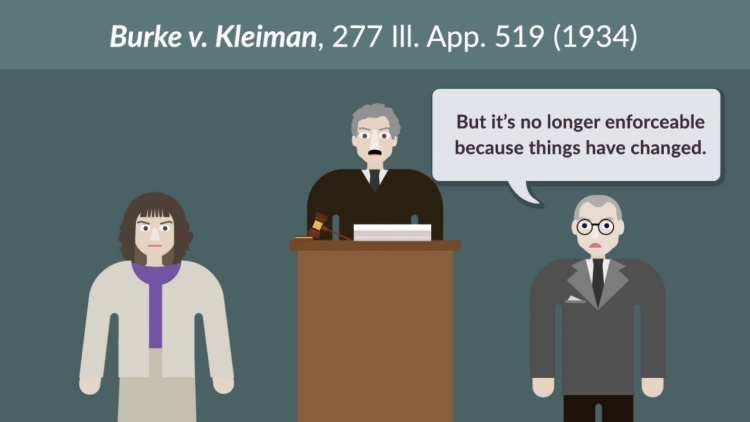Hansberry v. Lee
United States Supreme Court
311 U.S. 32, 61 S. Ct. 115, 85 L. Ed. 22 (1940)
- Written by DeAnna Swearingen, LLM
Facts
A group of Chicago landowners agreed to place a racially restrictive covenant on their land. Under the agreement, the land could not be sold, leased, or occupied by any person of color for a set period of time. However, the covenant would not be effective unless 95 percent of the owners in the area signed it. Roughly 54 percent signed, but in an earlier class-action suit concerning the covenant (Burke v. Kleiman, 277 Ill. App. 519 (1934)), it was stipulated that 95 percent of the owners signed. Hansberry and other African Americans (defendants) with knowledge of the agreement acquired land in the area from covenant signers. Anna Lee and others (plaintiffs) sued to enjoin the defendants’ breach of the covenant. The defendants claimed that the covenant was ineffective. The plaintiffs argued that the issue of whether a sufficient number of owners signed the covenant was previously decided and should be given res judicata effect. The defendants asserted that they were not parties to the original action and should not be bound, because otherwise they would be denied their right to litigate the action in violation of the Due Process Clause of the Fourteenth Amendment. The trial court ruled that the defendants were bound to the findings of Burke, and the Illinois Supreme Court affirmed. The defendants petitioned the United States Supreme Court for certiorari, which was granted.
Rule of Law
Issue
Holding and Reasoning (Stone, J.)
What to do next…
Here's why 904,000 law students have relied on our case briefs:
- Written by law professors and practitioners, not other law students. 47,100 briefs, keyed to 995 casebooks. Top-notch customer support.
- The right amount of information, includes the facts, issues, rule of law, holding and reasoning, and any concurrences and dissents.
- Access in your classes, works on your mobile and tablet. Massive library of related video lessons and high quality multiple-choice questions.
- Easy to use, uniform format for every case brief. Written in plain English, not in legalese. Our briefs summarize and simplify; they don’t just repeat the court’s language.






